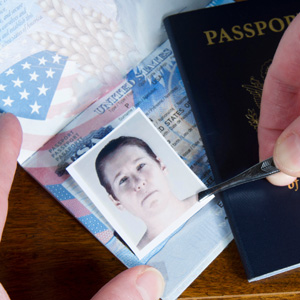When Is Forgery Considered a White-Collar Crime in California?
 Forgery is a serious offense in California and may lead to severe penalties for those who are convicted. Forgery is considered a type of white-collar crime, a non-violent crime typically involving financial gain through deception, fraud, or other means of dishonesty.
Forgery is a serious offense in California and may lead to severe penalties for those who are convicted. Forgery is considered a type of white-collar crime, a non-violent crime typically involving financial gain through deception, fraud, or other means of dishonesty.
If you are facing charges related to forgery, it is essential to seek the advice of a criminal defense attorney to ensure that your rights are protected. At Aron Law Firm, we are ready to help you understand your options and build a strong defense to mitigate your penalties.
What Is the Crime of Forgery in California?
Forgery is the act of creating, altering, or using a document or item with the intent to deceive or defraud another person. In California, forgery is legally defined under Penal Code Section 470, which states:
“Every person who, with the intent to defraud, knowing that he or she has no authority to do so, signs the name of another person or of a fictitious person to any of the items listed in subdivision is guilty of forgery.”
Forgery involves any document that has legal or financial value. This includes, but is not limited to:
- Bank bills
- Certificates of ownership
- Checks
- Contracts
- Deeds
- Lottery tickets
- Money orders
- Stock share certificates
- Wills
- Any other legal document
Forgery may also involve the creation of fake identification documents, such as driver’s licenses, passports, or social security cards.
When Is Forgery Considered a White-Collar Crime in California?
Forgery is considered a white-collar crime in California because it typically involves individuals in the business, government, or financial sectors who are seeking monetary gain through illegal means.
In California, forgery is a “wobbler” crime. This means crimes of forgery may be charged as a misdemeanor or a felony, depending on the severity of the offense. The penalties for forgery range from probation to several years in prison, depending on the circumstances of the crime.
Misdemeanor forgery charges are typically reserved for less serious offenses, such as the forgery of a minor document or an attempt to defraud someone of less than $950. Misdemeanor forgery charges result in up to one year in county jail and a fine of up to $1,000.
Felony forgery charges are more severe and are typically reserved for more serious offenses, such as the forgery of a major document or an attempt to defraud someone of more than $950. Felony forgery charges result in up to three years in state prison and a fine of up to $10,000.
Consult a California White-Collar Crime Defense Lawyer at Aron Law Firm
If you are facing forgery charges in California, there are several defenses that an Aron Law Firm criminal defense attorney may use to help you fight the charges. Some common defenses against forgery charges include lack of intent, mistaken identity, and duress or coercion.
If you or a loved one have been accused of forgery or any other white-collar crime in California, do not wait to seek legal help. Contact us today by calling (805) 618-1768 or filling out our convenient contact form to schedule a consultation and protect your rights. We are here to help you navigate the legal system and fight for your freedom.

EXPERTLY REVIEWED BY
William M. Aron
May 14, 2023
Former Deputy District Attorney William Aron received his Juris Doctorate from the Duke School of Law and has amassed 20 years of experience practicing law. Attorney Aron dedicates his practice to defending the accused, and is devoted to keeping his clients out of prison.

